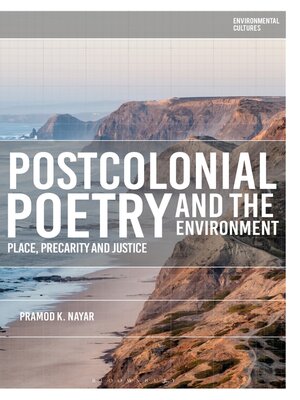Postcolonial Poetry and the Environment
ebook ∣ Place, Precarity and Justice · Environmental Cultures
By Pramod K. Nayar

Sign up to save your library
With an OverDrive account, you can save your favorite libraries for at-a-glance information about availability. Find out more about OverDrive accounts.
Find this title in Libby, the library reading app by OverDrive.



Search for a digital library with this title
Title found at these libraries:
| Library Name | Distance |
|---|---|
| Loading... |
Examining a wide variety of poets from the last three decades of the 20th century to the present, from Asian, African, South American and settler colonies such as Canada and Australia, Pramod K. Nayar maps a poetry of ecological care, vulnerability and resilience.
While environmental fiction has been widely studied, environmental poetry has not received the same level of attention. In Postcolonial Poetry and the Environment, Nayar studies the work of over 50 poets from the Global South and the formerly colonized, including John Kinsella, Tanure Ojaide, Linda Hogan, Kofi Awonoor, Okot p'Bitek, Ben Okri, and Sherwin Bitsui. He traces an ecological consciousness that cuts across human and nonhuman, living and non-living domains. This book is interested in the making, unmaking and remaking of worlds and meanings in the age of cataclysmic climate shifts, while aware of the histories that fashioned the planet in unjust and unequal ways, and to which the poets bear witness, as well as proposing alternative ways of seeing and meaning-making.
While environmental fiction has been widely studied, environmental poetry has not received the same level of attention. In Postcolonial Poetry and the Environment, Nayar studies the work of over 50 poets from the Global South and the formerly colonized, including John Kinsella, Tanure Ojaide, Linda Hogan, Kofi Awonoor, Okot p'Bitek, Ben Okri, and Sherwin Bitsui. He traces an ecological consciousness that cuts across human and nonhuman, living and non-living domains. This book is interested in the making, unmaking and remaking of worlds and meanings in the age of cataclysmic climate shifts, while aware of the histories that fashioned the planet in unjust and unequal ways, and to which the poets bear witness, as well as proposing alternative ways of seeing and meaning-making.







